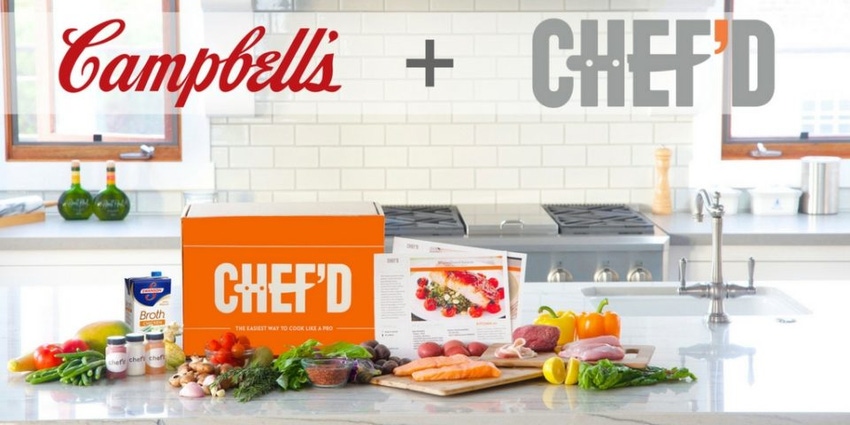Each day at 5 p.m. we collect the five top food and supplement headlines of the day, making it easy for you to catch up on today's most important natural products industry news.
May 25, 2017

Campbell Soup invests $10M in meal kit startup Chef'd
Earlier this month we heard about Unilever investing in Sun Basket; now fellow big food company Campbell is making a bet on a startup bringing meal kits to consumers via e-commerce. Campbell invested directly (not through its venture arm) in Chef'd, which partners with chefs and brands like Atkins and The New York Times to turn recipes into meal kits made up of pre-portioned ingredients that are delivered to customers. The investment is part of a Series B round of funding that also includes online grocer Fresh Direct. Read more at Fortune...
School district switches to local and organic meals, cuts carbon footprint—and saves money
In 2008, a group of parents at the Oakland Unified School District got together to urge the district to re-think how it was buying the food it served to students; the district, where 73 percent of students qualify for free or reduced lunches, responded by decreasing the amount of meat it was serving and adding locally grown fruits and vegetables to its menus at more than 100 schools. Students also go on field trips to local farms and take cooking classes. Five years later, a study by Friends of the Earth found that food costs—and the district's carbon footprint—shrank. The district is serving as a model for how schools can serve healthier, organic and local food on a budget. Read more at Yes! Magazine...
The Future of Whole Foods isn't about groceries
The threat of e-commerce and continuing price wars has been challenging for most food retailers, but what's especially challenging for Whole Foods Market has been boosting profits to please investors without losing its authenticity and commitment to standards and mission. Its current strategy involves cost-cutting, centralized buying and slower brick-and-mortar growth. Read more at Bloomberg...
Fig leaves are out. What to wear to be kind to the planet?
Americans spent 14 percent more on clothing and footwear in 2016 than in 2011. While consumers might not often think about it, there are environmental consequences to the chemical and industrial processes that textile manufacturers use to make these products. Many synthetic fibers, for example, are made from oil, a nonrenewable resource, and shed plastic filaments in the wash that can make their way into waterways and into the digestive tracts of grazing animals. Read more at The New York Times...
Scientists literally can't figure out how to make all-natural Lucky Charms
When General Mills decided to remove artificial colors and preservatives from its breakfast cereals, it may not have anticipated just how hard it would be to make a natural marshmallow. It's been trying for two years now, with apparently no success. Read more at Grub Street...
You May Also Like


